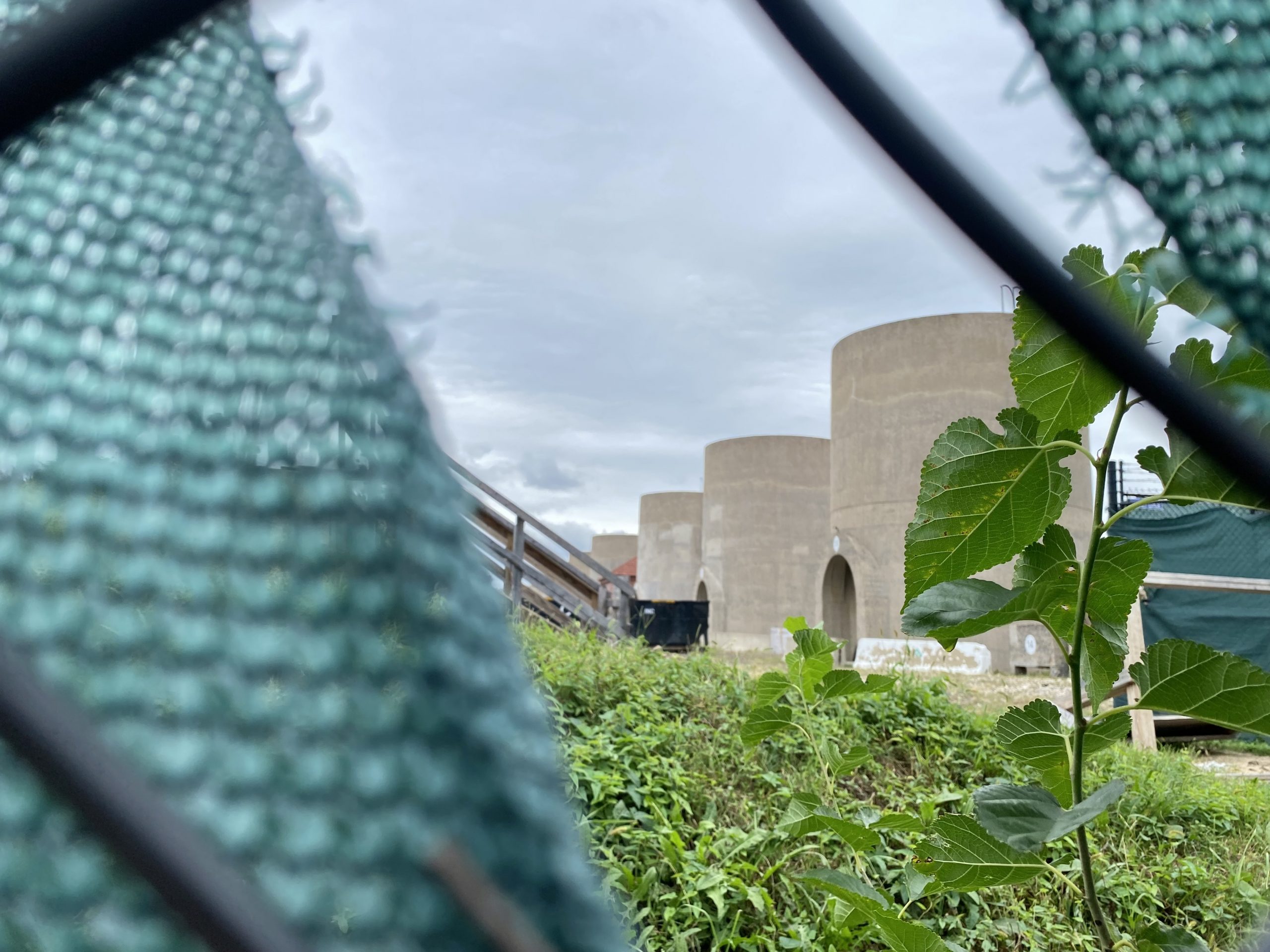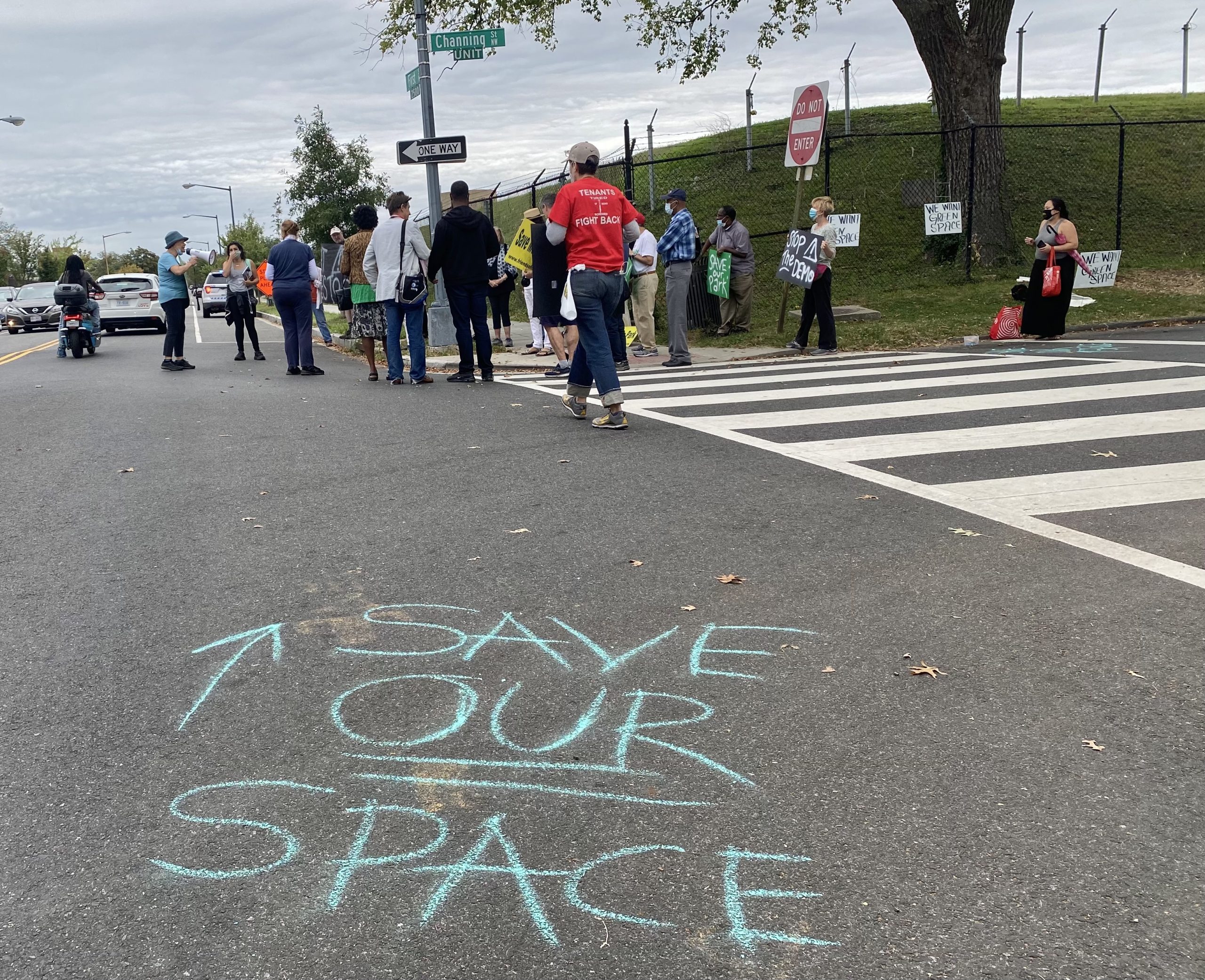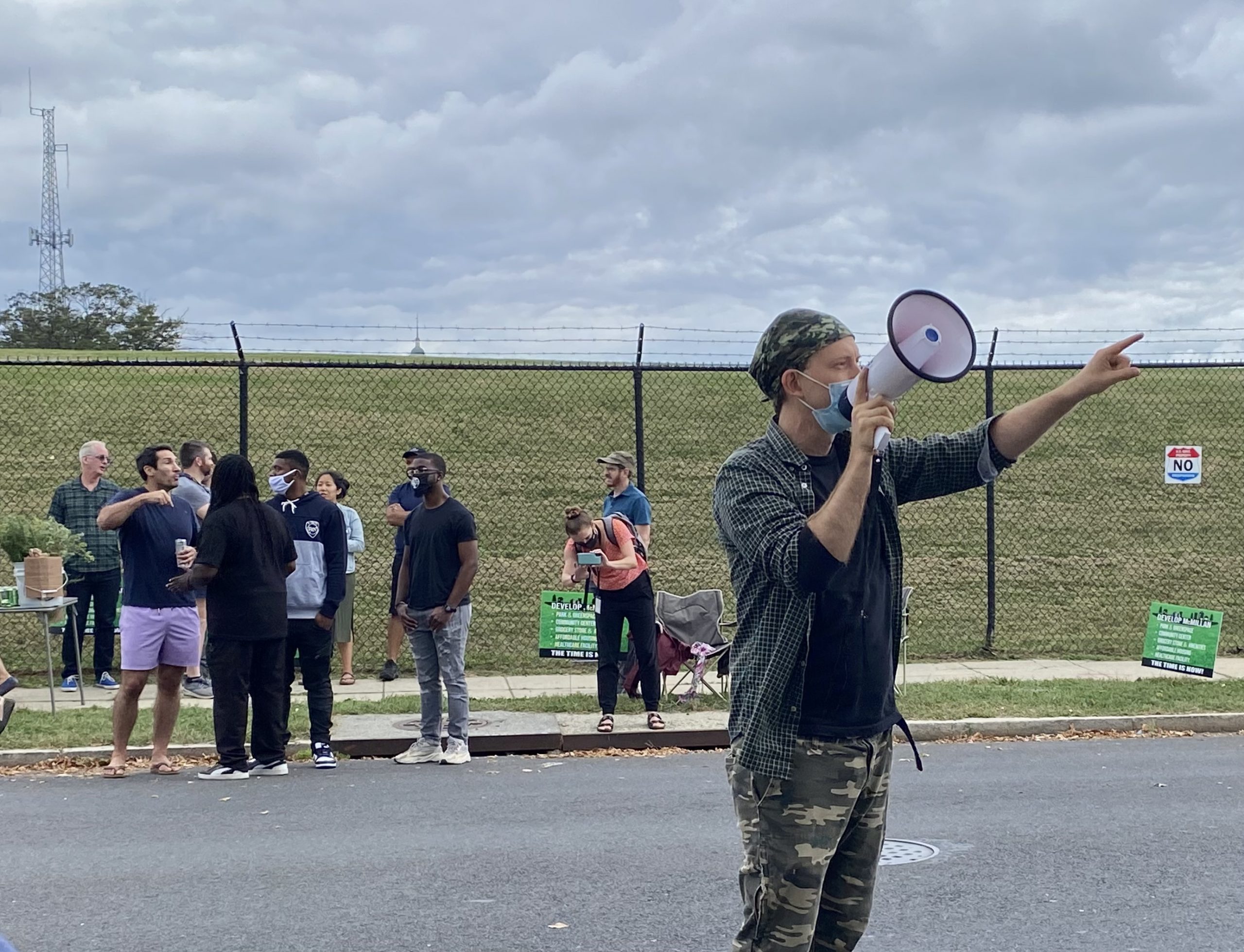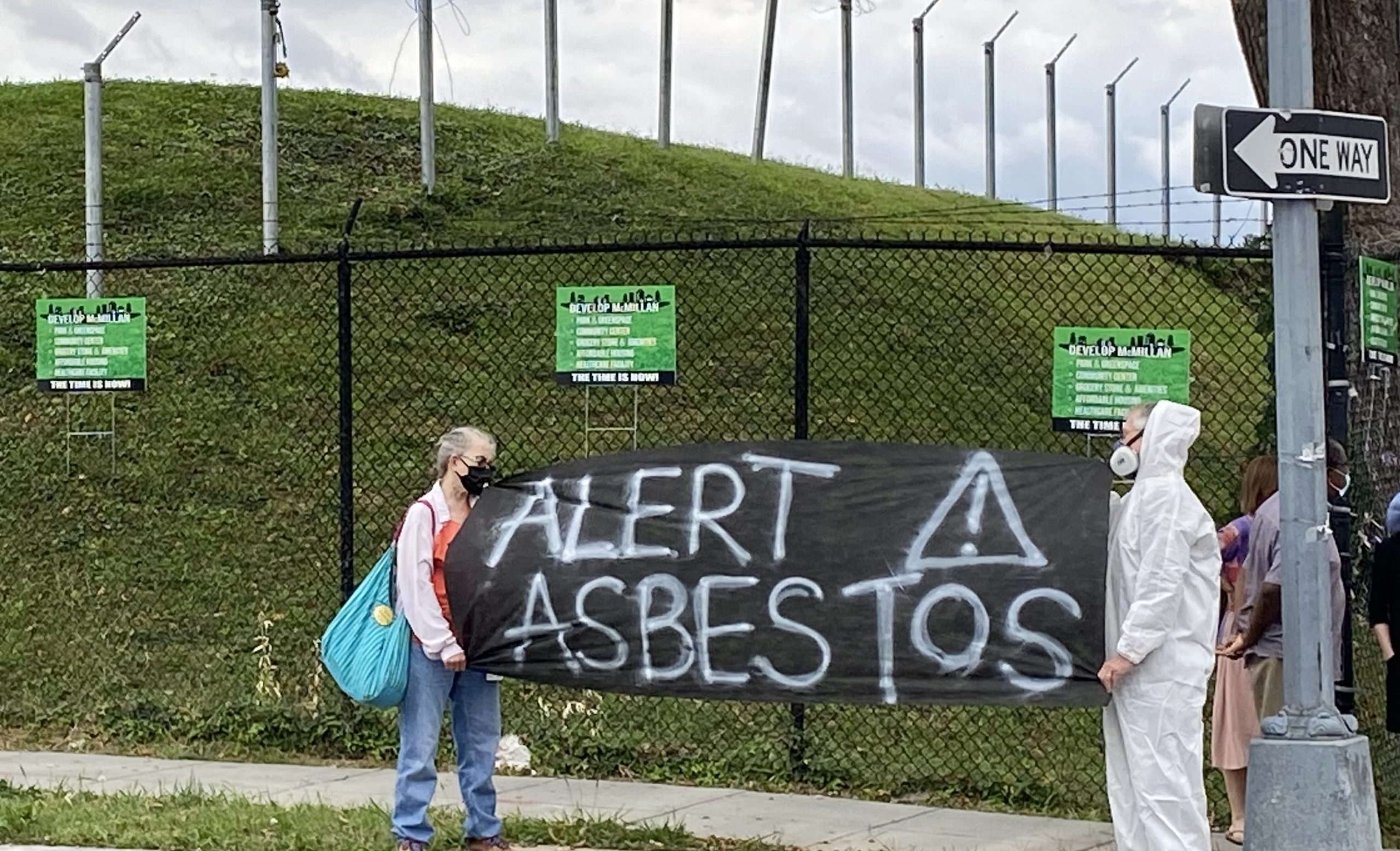Cynthia Carson has lived by the McMillan Sand Filtration Site for over 25 years. The site in Bloomingdale is the city’s first de facto racially-integrated park, and redevelopment plans to take over the park have been in the works for years. Carson doesn’t want to see the historical greenspace completely disappear.
“There’s plenty of space to build in D.C.,” she said. “You don’t have to take one of the last greenspaces here that’s of historic value to the city, historians and definitely the community.”
Supporters of preserving McMillan suffered a recent loss as the D.C. Court of Appeals is allowing demolition to begin. Despite the Sept. 29 ruling, community members and organizations, like Friends of McMillan Park, have filed lawsuits challenging the city’s demolition permits.
The 25-acre park has been the center of other court battles since ideas of redevelopment started, including zoning challenges.
The Vision McMillan project team, consisting of EYA Inc., Trammell Crow Co. and Jair Lynch Real Estate Partners designed a 2.1 million-square-foot plan that will include office spaces, housing, condos, a grocery store, a park and a community center.
Carson said the development plans are too much. She wants to see a more effective development to preserve the greenspace like building an amphitheater or a park that would be open to the public.
“We just need smart development and we don’t have smart leaders,” she said. “I think the mayor and her entire team lack vision and I think they’re going to be sorry if they develop this place to the extent that they want to develop it.”

Built in the early 1900s, the site was a system of underground chambers used to purify D.C.’s water. Renowned architect Frederick Law Olmsted, Jr. designed the grounds of the park, which became open to the public in 1912. The park is listed on the National Register of Historic Places, and it’s thought the site was the first racially-integrated park in the city.
In 2016, Mayor Muriel Bowser, Ward 5 Councilman Kenyan McDuffie and others broke ground on the site. The groundbreaking was solely ceremonial, as demolition was not legally allowed.
Shovels break McMillan ground @MayorBowser @DMPEDDC @kenner_brian @CM_McDuffie #mcmillangroundbreaking pic.twitter.com/PCcXnq6thu
— bill rice (@ricebilldc) December 7, 2016
The recent court ruling has made people wanting to save and protect the site furious. At a rally in support of preserving the park, community member Maurice Cook said the development will be unaffordable for the people who have lived in the area for generations. The development group says 20% of the plan’s housing will be affordable to those earning 50-80% of the area median income.
“It’s just another symbol of what has occurred throughout the city,” Cook said.

Others are ready for the redevelopment, like Bloomingdale resident Amy Zhou.
“It would just infuse life into what is otherwise a barbed wire, fenced-off plot of land,” she said.
Zhou and other neighbors counter-protested the rally.

“It’s not that I’m against these counter proposals, it’s just that none of them are real, none of them are material,” she said. “People want to see something versus nothing.”
Park supporters argued the new development will cause even more traffic headaches. Kirby Vining, treasurer of Friends of McMillan Park, said in hearings before the Zoning Commission, the development group estimated an additional 20,000 to 31,000 car trips in the area.
Vining said Friends of McMillan Park hired an engineer from WMATA to look at traffic data of the North Capitol Street and Michigan Avenue intersection. Vining said the engineer projected that car trips would be around double the given estimate.
“I don’t want to live in a neighborhood where there’s going to be thousands of additional cars,” Carson said.
Protestors are also worried about airborne asbestos if demolition begins. Carson wants to see the 20 filtration sites tested appropriately. Even at low levels, the CDC says exposure to asbestos can cause cancer.

“We want to test it, I don’t know why anyone would be against testing it,” she said.
Despite the possibility of the underground structures containing asbestos, demolition permits were approved as part of the D.C. Court of Appeals’ ruling. Supporters of the park will continue to fight for McMillan during their court hearing on Oct. 26.
“People have been in this neighborhood for generations,” Carson said. ”And we don’t want new unaffordable apartments and condos to take up the space.”















Add comment